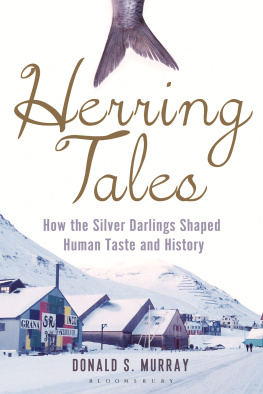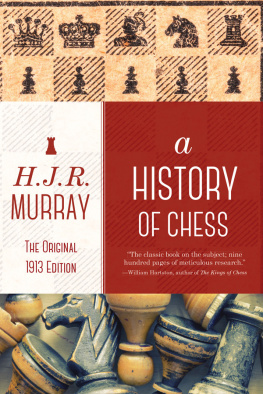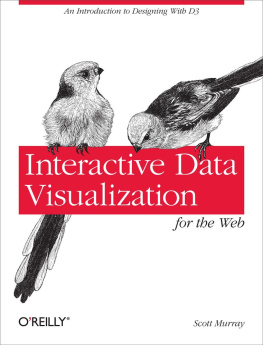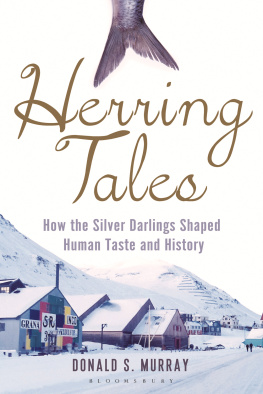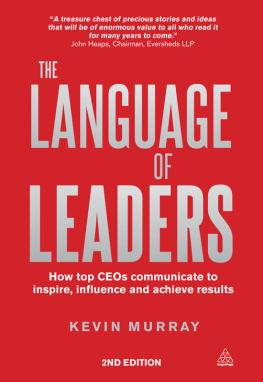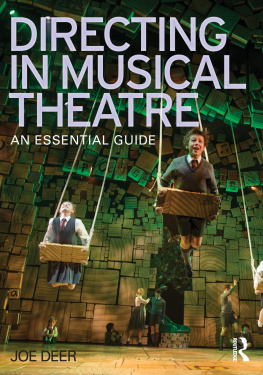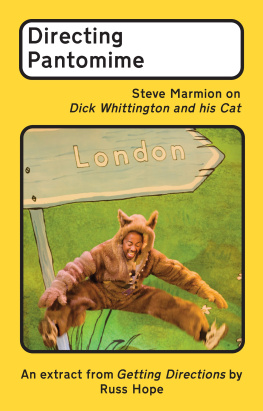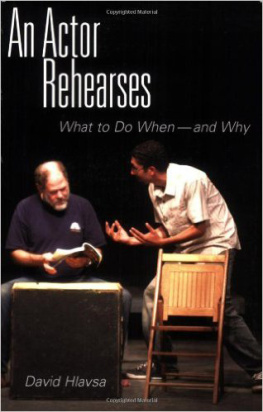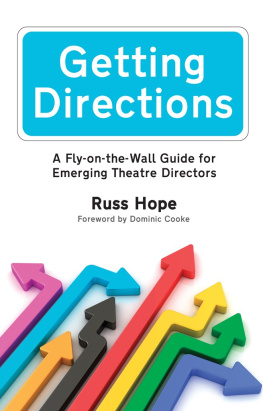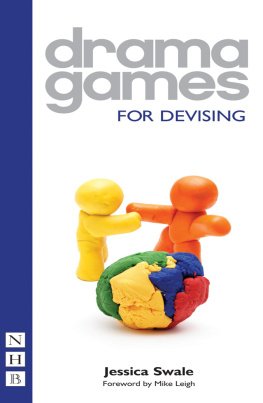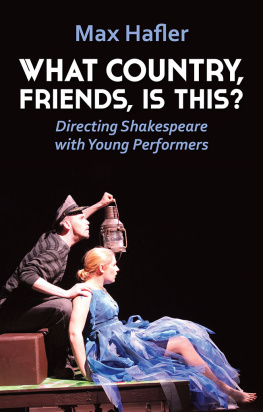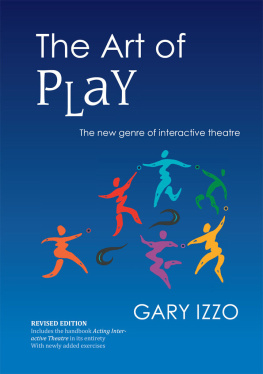HOW TO DIRECT A PLAY

First published in 2011 by Oberon Books Ltd
Electronic edition published in 2012
Oberon Books Ltd
521 Caledonian Road, London N7 9RH
Tel: +44 (0) 20 7607 3637 / Fax: +44 (0) 20 7607 3629
e-mail: info@oberonbooks.com
www.oberonbooks.com
Copyright Braham Murray 2011
Braham Murray is hereby identified as author of this work in accordance with section 77 of the Copyright, Designs and Patents Act 1988. The author has asserted his moral rights.
Extracts from The Glass Menagerie by Tennessee Williams. Copyright 1945, renewed 1973 The University of the South. Reprinted by permission of Georges Borchardt, Inc. for the Estate of Tennessee Williams.
Some material on directing Shakespearean verse, reproduced on pp.98-100, first appeared in Braham Murrays autobiography The Worst it Can Be is a Disaster Braham Murray, 2007, courtesy of Methuen Drama, an imprint of Bloomsbury Publishing Plc.
You may not copy, store, distribute, transmit, reproduce or otherwise make available this publication (or any part of it) in any form, or binding or by any means (print, electronic, digital, optical, mechanical, photocopying, recording or otherwise), without the prior written permission of the publisher. Any person who does any unauthorized act in relation to this publication may be liable to criminal prosecution and civil claims for damages.
A catalogue record for this book is available from the British Library.
Print ISBN: 978-1-84943-041-8
Digital ISBN: 978-1-84943-345-7
Cover design by James Illman
Visit www.oberonbooks.com to read more about all our books and to buy them. You will also find features, author interviews and news of any author events, and you can sign up for e-newsletters so that youre always first to hear about our new releases.
WARNING
I have just re-read what I have written and some of it seems so very complicated, so I thought I would warn you not to be worried about it. A director either has the knack or he doesnt, and a great deal of what he does he does instinctively; besides that, a lot of what he does involves common sense. I actually found writing this book made me more aware of myself as a director in a good way. It made it easier to marry the passion with the desire to be as helpful as possible to the actors and the creative team. So, I hope, it will be with you. Each of you will automatically know parts of what I am pointing to in the book but there will be parts you arent aware of, and that is where I hope to be helpful. In other words, dont be intimidated but enjoy, enjoy!
For brevity and simplicity, I have used he, but the reader should assume that she applies equally throughout.
MOST OF THEM GET IN YOUR WAY
T he extraordinary thing about directors, those gods of the theatre, is that they didnt exist before the middle of the nineteenth century. There have, of course, always been actors, mostly there have been writers, but not directors. We know that in the Greek Theatre there was a chorus master, but no director. In the Elizabethan Theatre there is no record of a director. Presumably there was a stage manager to make sure the actors came to rehearsal. Probably the playwright was primary in the rehearsal process and maybe the theatre manager, but there was no director.
The director seems to have appeared in Europe as the theatre became more complex technically in matters of sound, lighting and scenery. Someone was required to coordinate these new disciplines, and to do that job he had to have an overall view of the play that was being performed. Until then, the actor or actor-manager had been at the centre of the production but now an outside eye was required to create a satisfying artistic whole.
So the director came into being, making up the job as he went along, gradually becoming more and more powerful and ultimately getting to be the visionary, psychologist, academic, interpreter, leader and megalomaniac that he is today. He chooses the play, casts it, supervises the designers (scenery, costumes, lights, sound, movement, music, fights) and is the final authority for the actors.
If this is extraordinary so is the fact that, until recently, he has been totally untrained and has probably never seen another director at work. Yet he is working with highly trained artists and technicians who he controls.
There is no one way of directing. In fact there are as many ways of directing as there are directors. What then is the point of writing a book about directing? People who say that someone can be taught how to direct are talking nonsense. Directors can be helped to develop their talent: that is what I am trying to do in this book. Although there is no one way of directing, there is a pattern to all productions no matter who the director is. The same problems and challenges occur for everyone. One thing this book can do is to alert would-be directors to these problems and challenges and suggest ways of dealing with them. These will happen whether you have two weeks, five weeks or six months to rehearse, whether you are directing classics, new plays, comedies, tragedies or musicals, whether you are in-the-round, on the proscenium, in a studio space or a thousand-seater auditorium. These different circumstances have their own special challenges (which I will also deal with) but they also share a good deal in common.
This book is written by me so it will naturally reflect what I have learnt in nearly forty-five years as a professional director. It will only be about text-based theatre. I will give what I think is good advice but that advice is meant to be a stimulus not a prescription. I will take you through all the stages of pre-production, rehearsals and after the show has opened. You will have to decide if it is good advice but, if you reject it, at least it will stimulate you to find your own path. You may well start off your career as someones assistant and watching other directors direct can be very helpful but beware. My first professional job was as an assistant to a very successful director, John Dexter at the Royal Court. He was an authoritarian who cowed his cast into submission. He was also brilliant at the physical staging of the production, the mise en place. He was the only director I had seen at work and I thought that was how you did it, you shouted and bullied until you got what you wanted. I imitated him in my first productions until I realized it wasnt what fitted in with my personality and didnt get wonderful performances from the actors. I have written this book not as a manual, which I believe to be impossible.
Recently a distinguished actor who was working with me for the first time said, You make it so easy. When I asked him wasnt that the point, he replied, Most of them get in your way! Since finally it is the actor who stands in front of the audience and is the primary transmitter of the text, one of the main themes of this book is not only how to prevent the onerous job of directing, which requires stamina, concentration and a twenty-five hour day, from getting in the way but also about giving the actor the confidence to use his creative faculties to their fullest extent.
The first time I directed (at school), I was so frightened of the actors not carrying out my vision that I erected a booth at the side of the stage and shouted instructions to the actors during the performance like a football manager. It has been a long journey finding what I believe to be the right balance a director needs to fulfil what is finally a collective act of creation.
WHY DO YOU DO IT?
T he director is an artist, not a creative artist like a writer but an artist nonetheless, an interpretive one, like a conductor. Like any artist, much of his process will remain unconscious to himself, but the more he can understand what it is that drives him, the better he is able to manage the process because, unlike a writer or composer, most of his work is done in collaboration.
Next page

